Ian Sachs remembers the time he and some of the other seven-year-old kids at the Chabad shul in Scottsdale, Arizona, sneaked out of services and called 911 from the old phone booth outside. Fire trucks arrived, sirens blaring, and the kids ran off squealing as the rabbi came out to apologize for their mischief.
Chabad has a big place in Ian’s childhood memories, though the center itself was nothing grand. “It was a shabby place, a closet really, in a strip mall between an Irish bar and a Pizza Hut,” Ian remembers. “Friday nights near the bar were a trip.”
But what the center lacked in aesthetics, it made up for in ambience. Ian, his parents Nate and Dale, and his three brothers grew close to Chabad’s Rabbi Yossi and Dina Levertov and their seven children. “My father became really good friends with the rabbi, despite the age difference,” says Ian. “He felt so at home at Chabad. We’d drive to shul on Shabbat in our minivan, straight from soccer practice with our cleats still on, and feel no judgment at all.”
The Sachs family quickly became pillars of the community and one of the center’s major supporters. “My parents loved the idea of a Jewish experience without expectations, dues, or pressure,” Ian recalls.
“Well, maybe a little pressure,” he clarifies, “but for your own good.”
Thirty years later, Chabad of Scottsdale, now The Weksler Chabad Center, is looking different. The bar and pizzeria spaces were eventually incorporated into the center, which was remodeled then and again to fit its growing needs. Today Chabad takes up almost the entire strip mall — a beautiful synagogue, learning center, Judaica gift shop, kosher deli, and utensils mikvah.
But the heart and warmth that first drew in the Sachs family has remained constant.
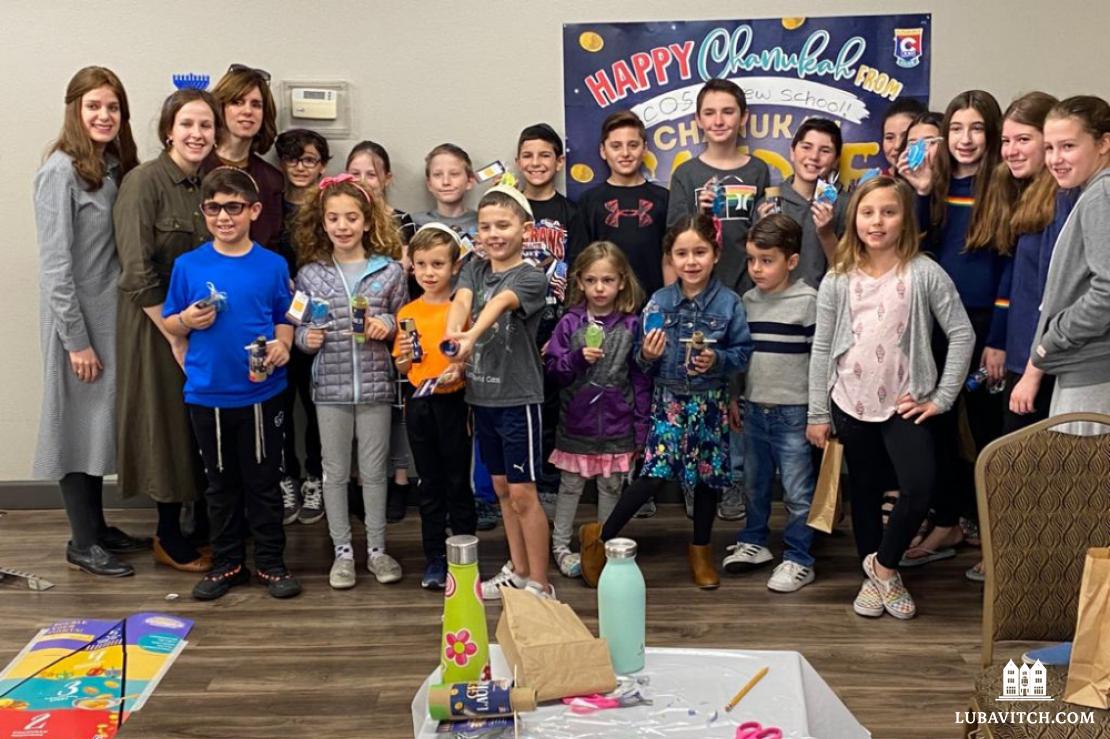
Barren Land
When Rabbi Yossi and Dina Levertov moved to Scottsdale in 1992, the city was mostly made up of elderly snowbirds drawn to the scenic desert oasis for its mild winters. The quiet town just outside the bustle of Phoenix, says Rabbi Levertov, was “America’s best-kept secret.”
With no Jewish infrastructure in place, the young Chabad emissaries sought out Jewish residents and connected with each family individually. They hosted holiday events and opened a small Hebrew school. In the pre-internet days, they hung up flyers, sent out mailers, and advertised in local newspapers.
It wasn’t always easy. “No family had any Jewish roots here, or any synagogue they were loyal to. People come and go in Arizona,” says Ian. That’s another thing he and his family appreciated about Chabad. “They’re committed to the mission. They came to Scottsdale planning on living here forever, through the ups and the downs, sacrificing their personal lives. Nothing was going to faze them.”
Slowly, a community formed. The shul grew, starting with only one Shabbat-observant couple who’d walk there even in the 110-degree summers, then attracting others. But how to engage those who weren’t up to attending services in synagogue? In 2003, the Levertovs purchased the storefront adjacent to their center and opened a kosher deli.
“In the old days, many of our winter residents were Holocaust survivors with a sense of Jewish connection ingrained in them. But today we’re working with a new generation, younger people, who have less of an automatic association with Judaism.” – Rabbi Yossi Levertov
Soul Food
Brandon Budd, originally from Toronto, had wandered into Chabad for Rosh Hashanah services some years prior. The young college graduate liked what he saw, and stayed. Now, the rabbi offered him the position of manager at the new Scottsdale Kosher Market and Deli. Brandon, who had recently left his job in marketing, accepted.
The store was organized in three sections. The crown jewel was the deli — the only kosher restaurant in town. It was flanked by a small grocery where one could buy kosher food not sold locally, and the Mazel Tov Judaica gift shop.
People started flocking in. First came the kosher-keeping visitors who were thrilled to have a kosher establishment in town. But soon, locals were coming for pastrami-on-rye sandwiches served up with mustard, coleslaw, and a half-sour pickle.
Then came those looking for Judaica. Someone needed a yahrzeit candle. Another was looking for a bar mitzvah gift. Someone else wanted to find out when Chanukah was and figured the guy at the Judaica shop counter would know.
“The Judaica store was never very profitable,” says Levertov, “but the interactions that it inspires make it worthwhile. So many people discovered their Judaism in that small shop. Nowadays you can get anything online, but there are still people who want the experience of trying on and choosing the right tallit, or bringing their children to see what beautiful Judaica looks like. And there are so many people who just stop in to chat or ask a question.”
Under Brandon’s management, the deli was also doing well — spiritually, at least. “It was less of a business and more of a calling. But every day we saw mitzvahs happen. It opened opportunities for Jewish engagement. So many locals decided to take on the mitzvah of keeping kosher, now that it was so convenient. Others stopped in for a sandwich and left with a mezuzah or Jewish book. The impact was profound.” And people of other faiths and ethnicities came for the New York-style deli feast. Budd himself had started growing in his observance and began using his Hebrew name, Chaim.
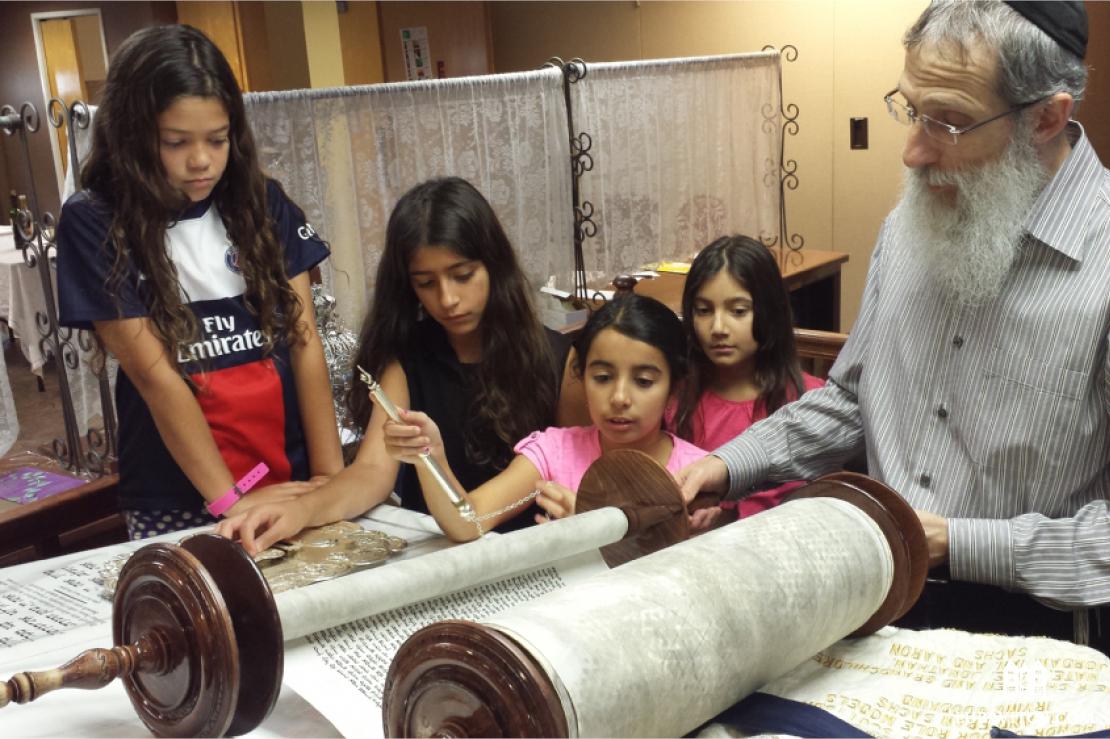
The city grew too. Now a serious metropolis, the Phoenix metro area ranks the fifth-largest city in the US, and snowbirds turned into full-time residents. The healthcare, high-tech, and engineering industries exploded. A younger demographic was moving in and America’s best-kept secret was out.
Chabad grew apace. Weekly Shabbat services grew, and bi-weekly evening services were introduced. A Hebrew School, Women’s Circle, guest lecturers, classes, and a whole gamut of social, spiritual, and educational programs followed. “Chabad became the one-stop-shop for everything Jewish,” says Budd. “People came to eat and saw there were regular prayer services and a place for their kids to learn about Judaism.”
As kosher food became more available in local stores, the grocery was disbanded and the deli expanded into the space. It was sold in 2016 and now functions as a successful for-profit restaurant called Kitchen18, under Levertov’s kosher supervision. Budd left the establishment years ago, but not before one of his customers introduced him to his now-wife.
“A family visiting from out of town came to grab a bite,” says Budd. “I got to know them, chatted with them for a bit, and soon they were telling me about this girl I had to meet.”
Levertov officiated at their wedding. To be closer to Jewish schools, Chaim Budd and his family moved to Phoenix, but they maintain close ties to the Scottsdale community. “We’ve lived in Phoenix for eight years now,” he says, “but when we were sending out invitations to a family celebration, the guest list from Scottsdale was just as long as the Phoenix one.”
Ian Sachs celebrated his bar mitzvah at Chabad, and the kid whose parents had once been completely unaffiliated read fluently from the Torah. Five years ago, Levertov officiated at his wedding too, with his wife Alexa.
“The fact that my brothers and I are all deeply connected with Judaism is only due to the Levertovs,” reflects Ian. “We all married Jewish women, we don tefillin daily, we celebrate the holidays, and we are all instilling in our children the Jewish pride and identity our father instilled in us.”
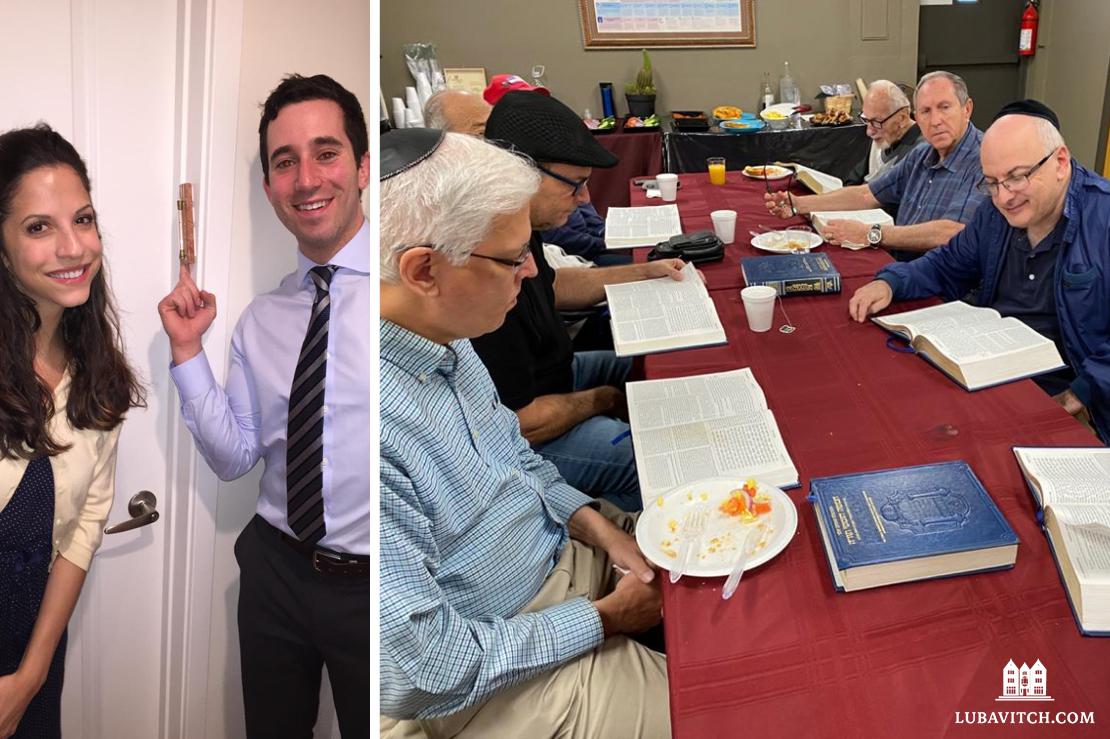
Young Jewish Professionals
“The Jewish soul is always searching for more,” says Michael Rosen. When he came to Scottsdale, he checked in with Chabad and felt right at home. “In places like New York or Los Angeles, you can get lost in the chaos, live your whole life not really meeting anyone. Here, people fight to have you over for dinner. It’s a tight-knit community, and I never lacked a Shabbat invite.”
Michael got to know Chabad at UC Santa Barbara in California and in Mesa, Arizona, where he went to dental school, and he quickly got involved in Scottsdale’s young Jewish professionals community. Recently expanded under the direction of the Levertovs’ eldest daughter, Chaya Vaisfiche, and her husband Mendel, it is a fast-growing community.
Rabbi Levertov considers the city’s changed landscape. “In the old days, many of our winter residents were Holocaust survivors with a sense of Jewish connection ingrained in them. But today we’re working with a new generation, younger people, who have less of an automatic association with Judaism. Our focus has shifted to educate a new demographic.”
The Vaisfiches brought in more new, young faces through programming focusing exclusively on that age group. But Michael says it wasn’t just the programming. “They set a good example of what a Jewish family looks like. They attract people just by being themselves.”
A Yeshiva Opens
This past March, Chabad welcomed its third generation into the community, with the birth of twins, a boy and a girl, to Ian and Alexa. When Nate Sachs passed away in November 2019, Ian came to synagogue to recite Kaddish every single day for eleven months. “It was hard for me,” he admits. “I am not a regular shul-goer. But my father was. And I knew this was important to him. So I made sure to be there, and not one minute late.”
Shabbat now brings some 150 local Jews to services. Dynamic Jewish programming and infrastructure make Scottsdale a comfortably Jewish place for the newly observant. The city even boasts an eruv.
“We’ve come a long way from the days where the concept of Shabbat was a foreign one,” says Dina Levertov. And that means it’s time to step up their game. This fall, Chabad is opening a yeshiva high school — one of the only Chabad mesivtas in the American West.
Robert and Johanna Ahdoot donated the seed funding for the new mesivta. “The rabbi’s two youngest sons are soon entering yeshiva and I don’t want them to have to go to New York or some other big city like their sisters did for high school,” says Robert. “I want them to stay here. New York doesn’t need these boys. We do.”
One-third of the thirty enrolled students are from Arizona, the rest are coming from out-of-town. Many are children of Chabad emissaries west of the Mississippi, but there’s even one from South America.
“The goal is for the deep quality of Torah study to reverberate across our community and bring many more Jews closer to our beautiful, 3,000-year heritage,” says Rabbi Levertov.
The community will welcome the yeshiva students with its signature hospitality. Studies will take place at the Hammerman Fisch Jewish Learning Center, adjacent to the main Chabad center now being remodeled. The Levertovs expect that locals will stop in and take advantage of the program to advance their own Torah study. On Fridays, the students will dedicate time to community service, visiting with Scottsdalians in their homes or businesses.
“I watched Mendel and Dovi grow up,” says Ahdoot of the young Levertov boys. “They are such a significant part of the community. Hearing them pray with us is heartwarming. We need to keep these boys close and bring their friends too, with their passion for Judaism. I want to hear all of their voices joining us for prayers.”
Budd is incredulous. A traditional yeshiva, Old-World Torah study here, where the saguaro cactus grow and bighorn sheep roam? Of all the strange things to happen in the desert.
This article appeared in the Lubavitch International Magazine – Fall 2021 issue. To subscribe and gain access to previous magazines please click here.
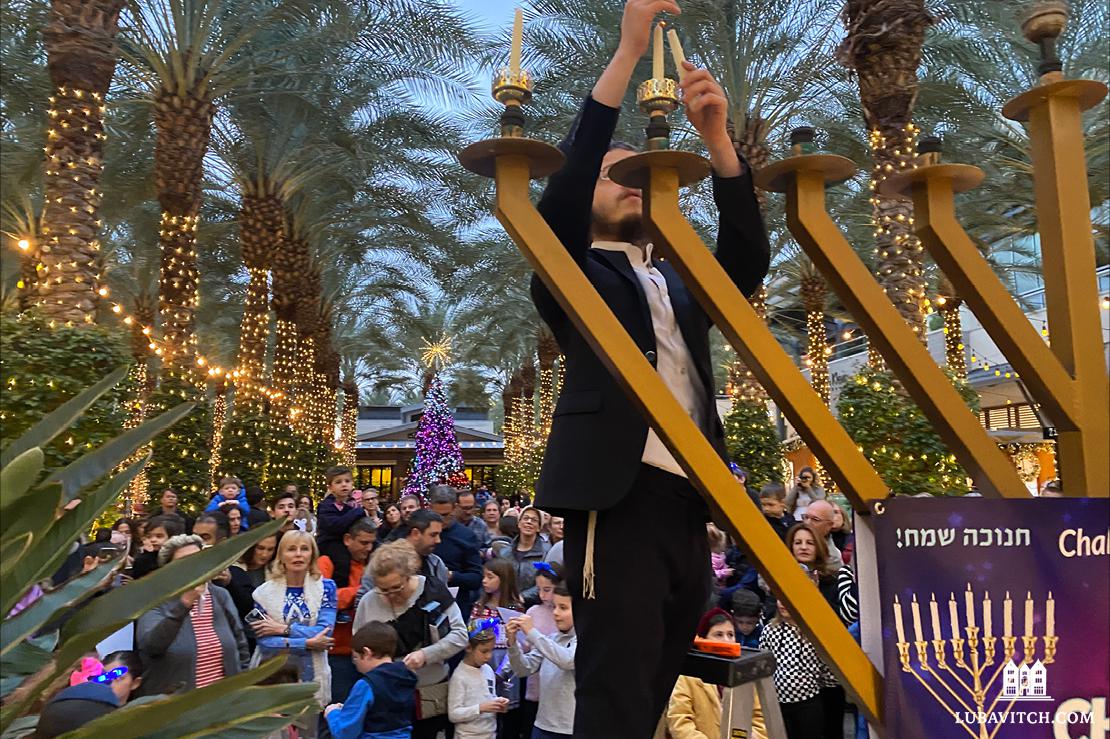
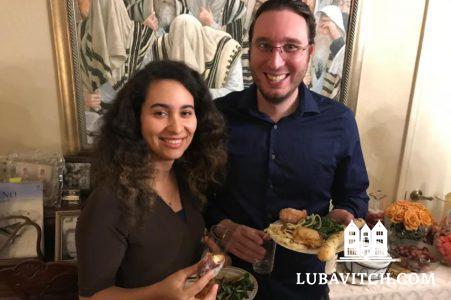
Be the first to write a comment.